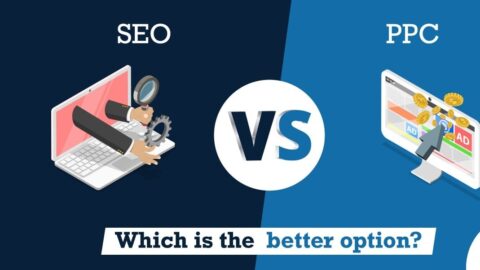DIY Business Plan vs. Consultant-Crafted Plan: Pros and Cons
A business plan is a document used to outline the strategic goals of a business and the methods by which those goals will be achieved. There are two main options for creating this important document. Businesses can either create their own plan or seek assistance from business plan consultants. Each approach has its advantages and disadvantages, which need to be considered when making a decision. In this article, we’ll explore both approaches and weigh up their pros and cons of DIY Business Plan and consultant-crafted business plan.
Table of Contents

DIY Business Plan: A Closer Look
A DIY business plan, as the name suggests, is a plan developed entirely by the business owner or team without external professional assistance. One of the primary attractions of the DIY approach is the cost savings it offers. Creating your own plan means not incurring the expenses associated with hiring a consultant. Furthermore, this method allows for personal involvement in every aspect of the planning process, creating a strong sense of ownership.
However, acknowledging the potential downsides is crucial. Without the expertise and guidance of a professional consultant, there may be limitations in conducting thorough market analysis, developing accurate financial projections, and crafting an effective overall strategy. In the ever-changing business landscape, lacking specialized knowledge can lead to missed opportunities and costly errors.
How do I make my own business plan?
To make your own business plan, follow these steps:
- Start with an executive summary outlining your business concept.
- Conduct market research to understand your target market and competition.
- Define your business structure, products/services, and marketing strategy.
- Develop a financial plan with budgets, projections, and funding requirements.
- Write a detailed operational and organizational plan.
- Review and revise your plan regularly to adapt to changes and improve its effectiveness.
How do I start my own business from zero?
To start your own business from scratch, follow these steps:
- Identify a viable business idea.
- Conduct market research to validate the idea and understand your target audience.
- Create a business plan outlining your goals, strategies, and financial projections.
- Secure necessary funding or bootstrap your business.
- Register your business, obtain necessary licenses, and set up operations.
- Market your product or service, build a customer base, and continuously adapt and grow your business.
Consultant-Crafted Business Plan: The Expert Touch
On the flip side, a business plan crafted by a consultant offers many advantages. Consultants possess expertise and experience in conducting thorough market research, financial analysis, and strategic planning. They bring valuable insights that may be overlooked when taking a do-it-yourself approach. By leveraging the knowledge of a consultant, you’ll have the tools to create a strong and well-informed business plan.
Additionally, having a well-developed plan can greatly benefit your efforts to secure external funding. This shows potential investors or lenders that you’ve put significant thought and effort into your business planning and are fully dedicated to achieving success.
The Pros of a DIY
Crafting a do-it-yourself (DIY business plan) offers its own advantages. This fosters a comprehensive understanding of your business and its intricacies, allowing you to become intimately familiar with every detail. This deep knowledge can prove invaluable when making critical decisions. In fact, numerous entrepreneurs have achieved success by employing self-made plans, illustrating that with dedication and research, a DIY approach can yield favorable outcomes.
Going through the process of writing a business plan can enhance your understanding of your business model, market, and financials. And you have complete control over the content, structure, and timeline of your business plan.
The Cons of a DIY
Nonetheless, taking the DIY approach does have its drawbacks. This requires a significant amount of time and can be mentally draining, especially if you don’t have prior experience in business planning. Moreover, there is a higher risk of making mistakes and omitting important details due to limited expertise, which could potentially harm the success of your business.
The Pros of a Consultant-Crafted Business Plan
A consultant-crafted business plan offers a range of benefits over DIY business plan. Firstly, they bring valuable expertise and knowledge to the table. Consultants provide an unbiased perspective, identifying potential challenges and offering strategic recommendations. They also excel in conducting comprehensive market research, ensuring that your plan is based on solid data and analysis. Additionally, a professionally crafted plan can boost your credibility when seeking financial support, demonstrating a dedication to excellence.
The Cons of a Consultant-Crafted Business Plan
While hiring a consultant can be beneficial, it does come with some challenges. The main disadvantage is the cost involved in securing professional services. Consultant fees can be quite high, which may pose a financial burden for small businesses or startups. Another potential drawback is becoming overly reliant on consultants, which could diminish your personal involvement in the business planning process. Strike a balance between leveraging their expertise and maintaining ownership of your unique business vision.
Although consultants aim to understand your business, they may not have the same level of insight and passion as you do. If there is a lack of clear communication or understanding between you and the consultant, the resulting plan may not fully reflect your vision or goals.
Ultimately, the decision between a DIY business plan and a consultant-crafted plan depends on your resources, expertise, and priorities. If you have the time, knowledge, and confidence to develop a thorough plan, a DIY approach can be a cost-effective option. However, if you lack the necessary skills or prefer to leverage external expertise, hiring a consultant can provide you with professional guidance and increase the plan’s quality.
The Right Choice for You
The decision between a DIY business plan and a consultant-crafted plan hinges on various factors, including your budget, experience, and the specific needs of your business. A DIY approach can foster a deep sense of ownership and understanding, but may lack the expertise necessary for comprehensive planning. Conversely, a consultant-crafted plan provides expert insights and credibility, but comes with a financial cost and the potential for reduced personal involvement.
Ultimately, the best choice depends on your circumstances and goals. Some businesses thrive with a DIY plan, while others benefit immensel from professional guidance. Weigh the pros and cons carefully, and make a decision that aligns with your vision for the future of your business.

Vice President, İntelligent Design & Consultancy Ltd
Over 12 years of global & rich experience in Portfolio & Program Delivery Management in leading & managing IT Governance, PMO, IT Portfolio/Program, IT Products, IT service delivery management, Budget Management, and more.











